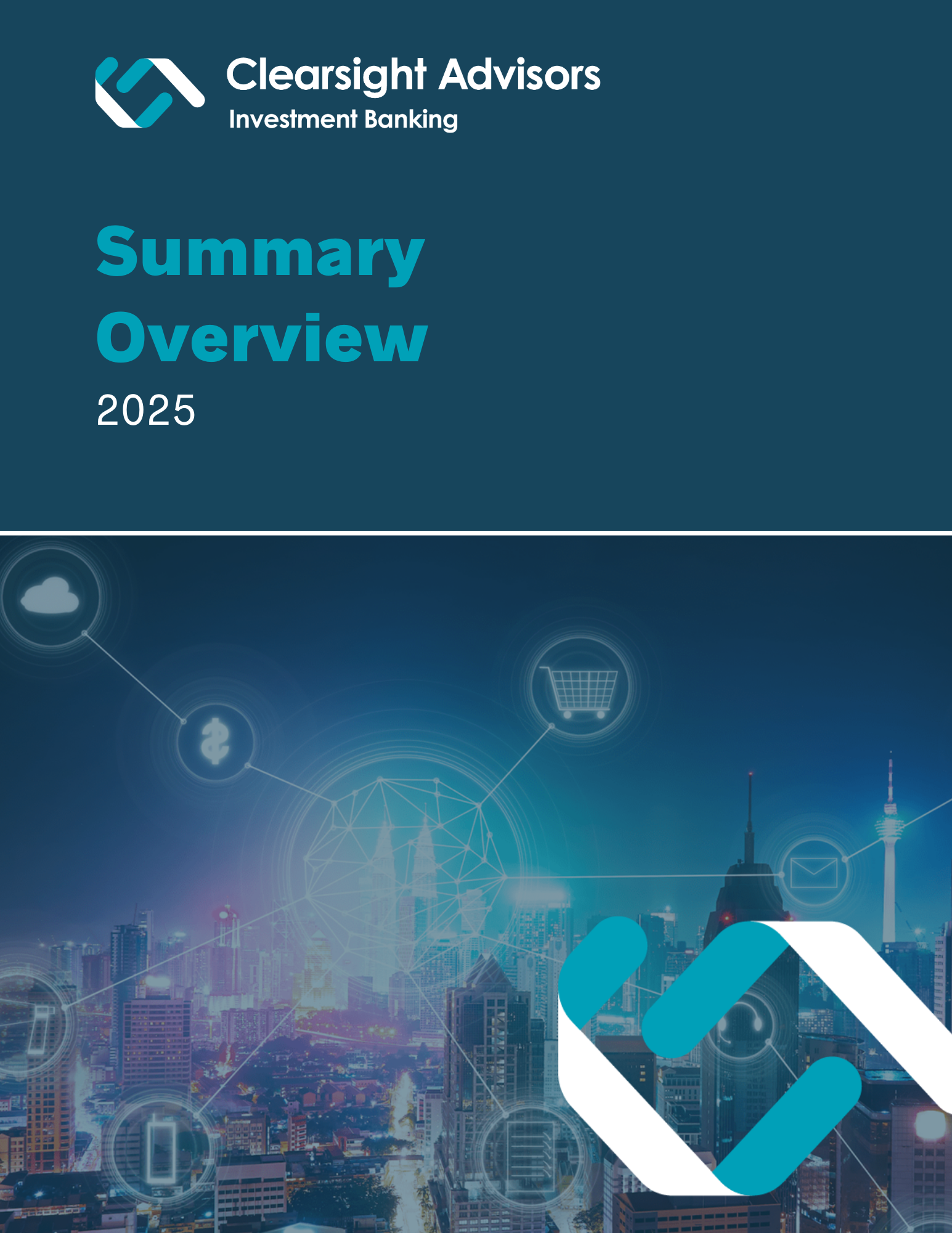The Burgeoning Private Equity Services Industry – Insights from Clearsight’s 2024 Summit
Clearsight Advisors’ annual Knowledge Economy Summit once again gathered over 200 C-Suite level decision-makers, private equity (PE) leaders, and strategic partners in Dallas, Texas for a day of networking and knowledge sharing. The event kicked off with a panel discussion moderated by Walt Breakell, Executive Vice President at Marwood Group, and was composed of distinguished leaders in PE services, including: David Barrosse, Founder and CEO of Capstone; Nick Leopard, Founder and CEO of Accordion Partners; Francois Mallette, Managing Director and leader of the Private Equity practice at L.E.K. Consulting; and Jayson Traxler, CEO of Stax. Their experiences leading premier consulting and PE services firms contributed to an insightful discussion about the market, its challenges, and its future.
To set the stage for the discussion, the panelists first debated whether PE services can best be considered a channel or a distinct vertical. Industry verticals – such as healthcare, energy, and financial services – each present specific needs, just like PE services. While the panelists didn’t arrive at a definite consensus, one point was resoundingly clear: PE is a force to be reckoned with and requires specialized capabilities to serve those in the industry. PE has evolved in recent years to become a multi-trillion-dollar industry, where many PE firms are facing pressure to deploy a historic amount of dry powder, totaling $2.6 trillion in 2023. This amplifies the demand for associated professional services businesses, ranging from due diligence and value creation to strategic consulting and public relations, all to support PE firms. While there was notable pullback in PE exits in 2023, PE firms remain obligated to be good stewards of their limited partners’ (LPs) money. They are obligated to return capital to LPs on a predetermined timeline, as previously detailed by Clearsight Director Justin Loeb in a recent blog. PE firms are in constant competition for assets, capital, personnel, and resources, and rely on specialized advisory firms to capitalize on opportunities while minimizing downside risk.
Delving further into the market’s appetite for specific PE services, the panelists were asked to weigh in on which is the better approach, a “best-of-breed” or a “full-service suite” strategy. The panelists agreed a best-of-breed strategy is important due to the recurring nature of the business landscape, while also recognizing the client appeal of a comprehensive suite of offerings. Not surprisingly, in PE, business derives from building recurring work and relationships – a reputation takes years to build but minutes to break. The pullback many PE and consulting firms experienced in 2023 had a particularly material impact on transaction-oriented consulting firms. Activity for value creation firms, on the other hand, remained busy as the nature of that work favors long-term projects. Additionally, firms that parlayed their transaction experience into a broader set of capabilities and value-creation projects saw more success as they were able to ride the ebbs and flows of the M&A market.
In the professional services realm, people remain a company’s most valuable asset and are necessary to drive growth and strengthen culture. So it’s no surprise the pandemic disrupted recruiting, mentoring, and retaining knowledge economy workers. Our panelists noted a return to in-person collaboration, whether through hybrid or fully in-person environments, has thus far resulted in more success for a business, its people, and its clients. The panelists agreed a deeper commitment to training and mentorship benefits apprenticeship-centric business models and results in improved employee commitment and advancement.
To conclude the discussion, our panelists touched on the hyper-present topic of generative AI and its potential impact on PE services. Like other industries, PE services leaders are trying to implement and strategize around the technology to best aid both employees and clients. Separate from internal or client usage, market activity is being driven by AI. Firms who become smart on it now will be better positioned to steer future market activity.
Barrosse, Leopard, Mallette, and Traxler offered valuable insight into the current state of the PE services market; all concluded that the future is bright. As the portion of private capital in portfolios remains relatively small (around 30% at the end of 2022), there is ample room for growth for both existing and new entrants into the PE services market. For new entrants, the panelists advised prioritizing a nimble workforce that can move at the speed of a firm’s clients. By offering a differentiated product, excellent quality control, and a unique recruiting strategy, a firm can build a strong, reputable brand in the PE market. With the private capital space growing via new funds and multi-strategy asset managers, growth in the PE services market is still in its infancy.
To learn more about Clearsight’s annual summit or experience advising Knowledge Economy businesses, including PE services firms, please contact us at marketing@clearsightadvisors.com.
Sources:
Pitchbook
2022 NACUBO-TIAA Study of Endowments
Share
